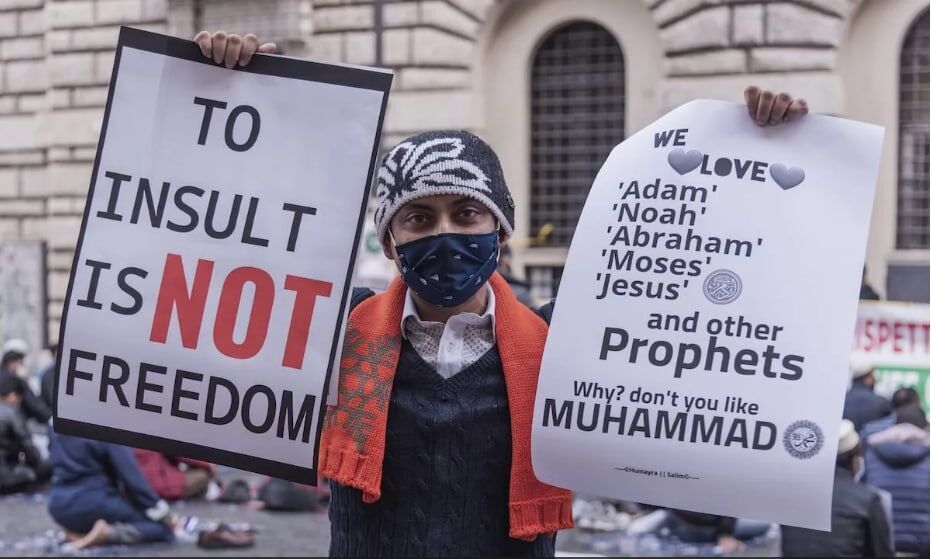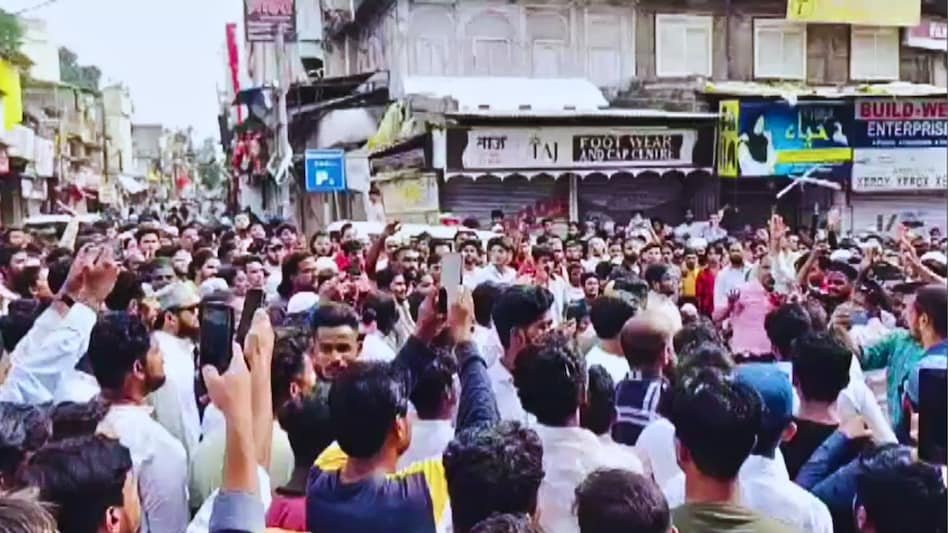– Maaz Ahmed Javed (M. Tech., AMU)
Today, approximately fourteen and a half hundred years ago, the greatest revolution of humanity took place in the land of Hijaz. From which humanity is still benefiting today. One major feature of this revolution is that it was the least bloody revolution in human history. It can also be called non-bloody or bloodless without being unjust. An important phase of this revolution was the phase of the conquest of Makkah, which occurred in the eighth year of Hijra. On the day of the conquest of Makkah, the companions of the Prophet were filled with fury and their emotions were surging, during which someone shouted, ‘Today is the day of battle,’ meaning today is the day for shedding blood and cutting flesh. The Messenger of Allah ﷺ stopped those people, saying, ‘No, rather today is the day of mercy.’ Then history saw that this was not merely a verbal claim because on that day a general amnesty was announced, and even the worst enemies of Islam were granted security. These were not ordinary people; rather, these were those who had troubled the greatest benefactor of humanity for thirteen years without any crime, subjected the companions to various kinds of trials until attempts were even made to kill them. As a result, all these people had to migrate. But those same people, when they entered the city as victors, forgave everyone, except for a few. Who were these people that were not forgiven? Among them were some who used to spread poison against the Prophet ﷺ and used to compose mocking verses against him ﷺ. Besides this incident, we find many such examples in Islamic history that show Muslims have never tolerated disrespect towards their Prophet ﷺ. Imam Malik (R.A.) said that there is no status for a community in which there is disrespect towards its Prophet ﷺ. Thus, even today, the Ummah stands firmly on this position. Whenever any enemy of Islam commits this crime, the Ummah becomes a voice of protest against it. However, a point to ponder is why does a person commit such a heinous crime? Is he not aware of the ugliness of his act? Is he unaware of the status and rank of that noble person ﷺ? Or does he want to provoke the emotions of Muslims to achieve some political goals? Or does he want to prove himself as a staunch enemy of Islam to gain popularity among certain people? Or is he just a small pawn in a larger conspiracy? Is it possible that we have failed to convey the message of Islamic teachings and the radiant character of the Prophet ﷺ to such people? Have we misrepresented Islam both academically and practically? Upon reflection, it seems that all these reasons are somehow at work behind these incidents.

Widespread protests were carried out in Maharashtra by Muslims after another incident of blasphemy against the Prophet Muhammad (PBUH)
The condition of the country, especially for Muslims, is changing very rapidly. It feels like they are being pushed towards a precipice. And they have only two options: either to silently witness their overall destruction or to submit to the wishes of their opponents. As a result, Muslims are being harmed from every angle. And a link in this series is to harm the image of a person who is the centre of the affections and love of Muslims, the source and spring of the religion of Islam, the only means of divine guidance for all humanity, the one who is the greatest benefactor of all people and a mercy for all worlds; this person is targeted through various pretexts. This act deeply wounds the beliefs of Muslims and hurts their emotions. However, if Muslims become accustomed to this behaviour and accept it as a norm, their connection to Islam will remain nominal. This weakness can fragment the entire Ummah. This is the plan under which such incidents are orchestrated both within the country and abroad. Muslims have not yet tolerated this act, but have we been able to make our stance clear to opponents who consider this act trivial? Unfortunately, we have faced serious shortcomings in this matter. We have not been able to convey to people that the Messenger of Allah ﷺ is the foundation of our religion. He ﷺ has acquainted us with the realities of this world and the Hereafter. He ﷺ has informed us about the unseen. The Holy Quran has also reached us through him ﷺ. Above all, if a Muslim does not love him ﷺ more than all worldly things and even more than his own self, he cannot be a true believer. For this reason, Muslims consider an attack on the Messenger ﷺ as more serious than an attack on their own lives.

Muslims do not insult any religion, religious figures or deities, then why this hate propaganda is carried out against their religion?
They respond to it without concern for their lives. Since all the laws of the world grant the right to defend against an attack on one’s life, the world should not be surprised by this reaction of Muslims. Muslims also have a responsibility to present the life of the Prophet ﷺ to people both academically and practically. They should inform them that he ﷺ is a mercy for all humanity. And even today, if the world follows his ﷺ teachings, it could become a paradise on earth. Islamic teachings need to be presented in such a way that people are drawn to them rather than frightened by them. This guidance is also found in a hadith where it was said, ‘Be bearers of good news and do not drive people away.’ We should make this our practice. Tell people that whatever angle they adopt towards Islam, they will attain peace and tranquillity. It does not mean that such incidents will cease, but where the propaganda of falsehood is strong, it is essential for us to continue our efforts vigorousl

